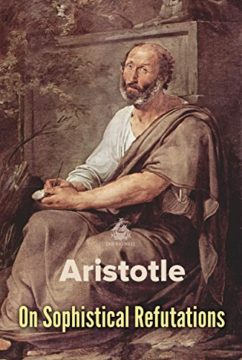by Jochen Szangolies

Picture the internet circa late 2000s, during the heyday of New Atheism: virtually everywhere, it seemed, people were embroiled in a grand crusade for truth, a final showdown of faith versus reason, religion versus science, revelation versus empiricism. On both sides, fallacy was the weapon of choice: demonstrate the logical error at the heart of your opponent’s argument—burn down their straw men, chase the true Scotsmen from their hiding spots, poison the cherries they pick—and add a notch to your belt.
These were simpler times, where truth was a monolithical concept, not the many-fingered, complex thing it has become, where universal principles reigned superior over context and individual perspective, where all of the crummy details of human life seemed just so much detritus to abstract away to find the common truth below—a truth that, you were sure, everybody would be compelled to accept, could they just manage to see past their various biases and prejudices. This vision has receded into the mist—and, one might say, good riddance: how much richer is the world in all its variety, where different perspectives cannot all be resolved into a grand, but bland homogeneity, but must find a means of peaceful coexistence, where the individual is no longer neglected in favor of the supposedly universal, where we each might have a chance to live our truth. But let’s not get ahead of ourselves. Read more »
